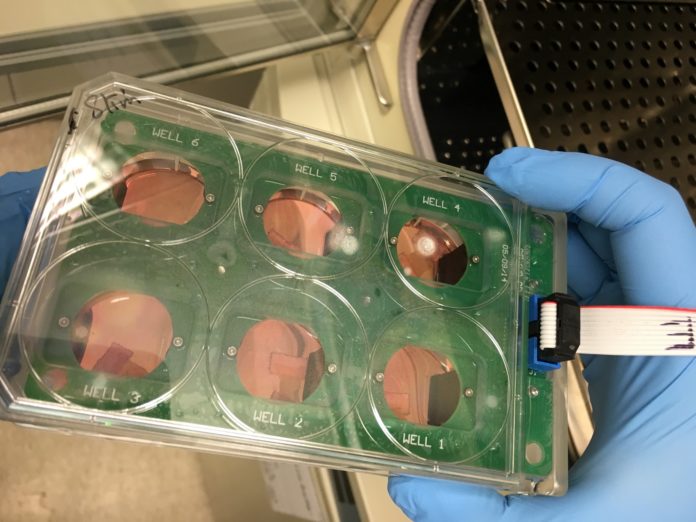
A University of Louisville research-born invention that could spur new medicines by extending the usable life of heart tissue from one day to 12 now has a commercial partner.
San Diego, Cal.-based AnaBios, a biotech firm that offers data, services, insights and tissue for drug developers, has signed a non-exclusive license to use the technology. The patent-pending UofL technology overcomes a major barrier to drug discovery, allowing researchers more time to test the effectiveness and toxicity of new drugs, drug candidates and gene therapies.
“Limited viability of test heart tissue means there’s less access, which slows down the development of new, potentially life-saving medications,” said Tamer M. A. Mohamed, an associate professor who invented the technology as part of a multi-disciplinary team from the UofL School of Medicine and J.B. Speed School of Engineering. “Our goal is to give researchers more time and speed up the discovery process while improving safety and efficacy.”
Because of the short shelf-life of human heart tissue, many drug candidates today are tested in ways that don’t perfectly emulate living heart tissue or use tests that otherwise don’t show the full range of potential side effects related to cardiotoxicity. This, Mohamed said, could be a reason some drug candidates fail Phase 1 clinical trials or get taken off the market after being launched.
“AnaBios has always believed that a key to successful drug discovery is incorporating human tissue at the preclinical stage,” said Dr. Andre Ghetti, Chief Executive Officer at AnaBios. “We have a long history of implementing human cell-and-tissue-based innovation at industrial scale. Implementing UofL’s cardiac slice technology is aligned with our translational research focus.”
The technology, protected and licensed through the UofL Office of Research and Innovation, extends the tissue’s usable life to 12 days by mimicking the conditions experienced by a living heart. The tissue ‘lives’ in a pneumatic chamber, receiving electrical stimulation and nutrition and pumping air instead of blood. AnaBios plans to incorporate these methods into its offerings. Mohamed co-invented the technology with researcher Guruprasad Giridharan and then doctoral student Moustafa Meki.
“The license and commercialization of this innovative approach are the outcome of the successful collaboration with Dr. Mohamed and the University of Louisville,” said Najah Abi-Gerges, AnaBios’s vice president of research and development. “We have been thrilled to contribute to the validation of the cardiac slice technology and believe this UofL research will have a positive impact on medical innovation.”


































